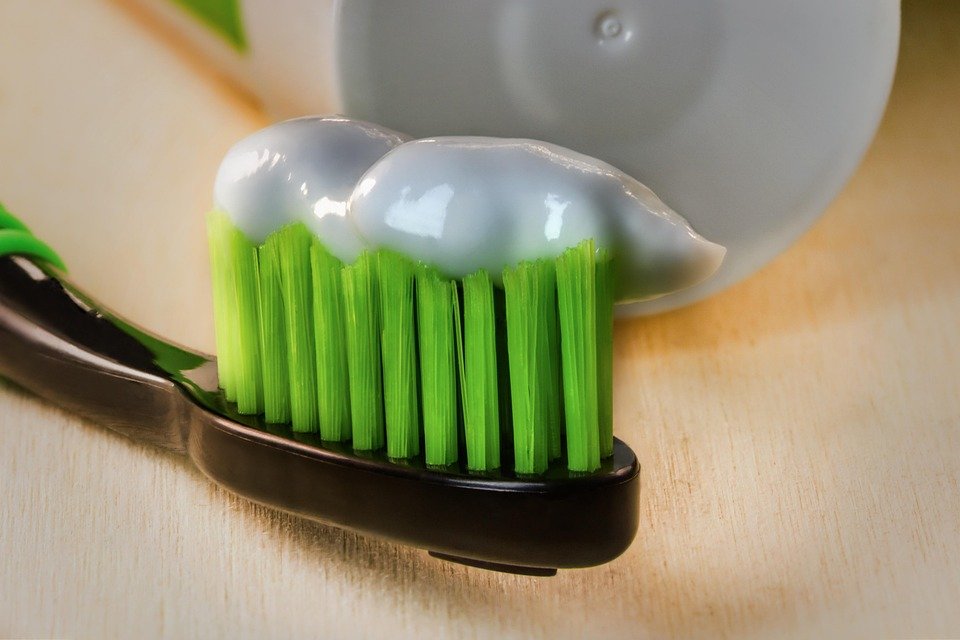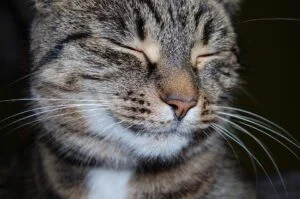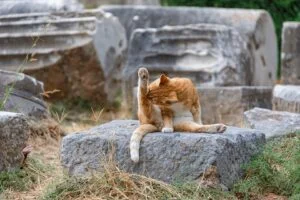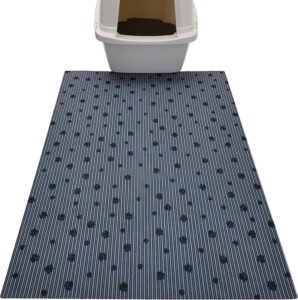
“`html
Introduction
Cats are known for their self-grooming habits, but when it comes to dental care, they need a little help from their human companions. Proper dental hygiene is essential for maintaining your cat’s overall health and well-being. Dental issues in cats can lead to pain, infections, and even more severe health problems if left untreated. In this article, we will delve into “Purrfect Dental Tips for Your Cat,” providing you with a comprehensive guide to ensuring your feline friend maintains a healthy mouth.
Understanding Feline Dental Health
Cats, like humans, can suffer from various dental problems, including periodontal disease, gingivitis, and tooth resorption. These conditions can be painful and may lead to more severe health issues if not addressed. It’s crucial to understand the anatomy of a cat’s mouth and the common dental problems they face to provide the best care.
The Anatomy of a Cat’s Mouth
A cat’s mouth is designed for their carnivorous diet. They have sharp teeth for tearing meat and a strong jaw to aid in chewing. Cats have 30 permanent teeth, and their oral health is just as important as their overall well-being. Understanding the structure of a cat’s mouth can help identify any abnormalities or potential dental issues.
Common Dental Problems in Cats
– **Periodontal Disease:** This is the most common dental issue in cats, affecting the gums and the structures supporting the teeth. It begins with plaque buildup and can lead to tooth loss if untreated.
– **Gingivitis:** Inflammation of the gums caused by plaque and bacteria can lead to discomfort and potential infections.
– **Tooth Resorption:** This condition involves the breakdown of the tooth structure, often resulting in the need for extraction. It is relatively common in cats and can be quite painful.
– **Stomatitis:** A severe inflammation of the mouth lining, stomatitis can cause extensive discomfort and difficulty eating.
Daily Dental Care for Your Cat
Maintaining your cat’s dental health requires regular care and attention. Implementing a daily dental routine can significantly reduce the risk of dental issues.
Brushing Your Cat’s Teeth
Brushing your cat’s teeth is one of the most effective ways to prevent dental problems. While it may take some patience and practice, it can become a manageable part of your routine.
– **Choose the Right Tools:** Use a soft-bristled toothbrush designed for cats and a feline-specific toothpaste. Human toothpaste can be harmful to cats.
– **Introduce Gradually:** Allow your cat to get accustomed to the toothbrush and toothpaste by letting them sniff and taste the paste.
– **Gentle Brushing Technique:** Lift the cat’s lip and gently brush in small circular motions. Focus on the gum line and back teeth where plaque tends to accumulate.
– **Reward and Encourage:** Use treats and positive reinforcement to make the experience pleasant for your cat.
Dental Treats and Toys
Dental treats and toys can complement your cat’s oral hygiene routine. They are designed to help reduce plaque and tartar buildup while satisfying your cat’s natural chewing instincts.
– **Choose Quality Products:** Ensure the treats and toys are designed for dental health and are safe for your cat to chew.
– **Monitor Usage:** Supervise your cat while they enjoy dental treats or toys to prevent choking or ingestion of small parts.
Dietary Considerations for Dental Health
Diet plays a crucial role in maintaining your cat’s dental health. The right food can help reduce plaque buildup and promote healthier teeth and gums.
Choosing the Right Cat Food
– **Dry vs. Wet Food:** Dry kibble can help reduce plaque buildup due to its abrasive texture. However, a combination of wet and dry food may provide a balanced diet.
– **Dental Diets:** Some cat food brands offer dental-specific formulas designed to reduce plaque and tartar. Consult your veterinarian to see if these diets are suitable for your cat.
– **Avoid Sugary Treats:** Sugary treats can contribute to plaque buildup and should be avoided.
Regular Veterinary Check-Ups
Routine veterinary visits are essential for monitoring your cat’s dental health. A veterinarian can identify and address any dental issues before they become severe.
Professional Dental Cleanings
– **Frequency:** Most cats benefit from professional dental cleanings at least once a year. However, some cats may require more frequent cleanings, depending on their dental health.
– **Anesthesia Considerations:** Dental cleanings for cats typically require anesthesia to ensure a thorough and stress-free procedure. Discuss any concerns you have with your veterinarian.
Signs of Dental Problems
Being vigilant about your cat’s dental health involves recognizing signs of potential problems.
– **Bad Breath:** Persistent bad breath is often a sign of dental issues and should not be ignored.
– **Drooling or Pawing at the Mouth:** These behaviors may indicate pain or discomfort in the mouth.
– **Difficulty Eating:** If your cat is reluctant to eat or shows a preference for softer foods, it may be due to dental pain.
– **Inflamed Gums or Loose Teeth:** Regularly check your cat’s mouth for signs of inflammation or loose teeth, and consult your veterinarian if you notice these symptoms.
The Importance of Early Intervention
Early intervention is key to preventing dental issues from escalating. Regularly monitoring your cat’s dental health and seeking veterinary care at the first sign of trouble can save your cat from unnecessary pain and ensure a healthier life.
Implementing a Dental Care Routine
– **Start Early:** Begin dental care when your cat is young to get them accustomed to the process.
– **Be Consistent:** Regular care and check-ups are crucial for maintaining dental health.
– **Educate Yourself:** Stay informed about feline dental health to provide the best care for your pet.
Conclusion
Taking care of your cat’s dental health is an essential part of responsible pet ownership. By understanding the common dental issues cats face, implementing a daily dental care routine, and seeking regular veterinary check-ups, you can ensure your feline friend enjoys a healthy mouth and a happy life. Remember, a little effort and attention to your cat’s dental hygiene can go a long way in preventing serious health problems and ensuring a purrfect smile.
“`






